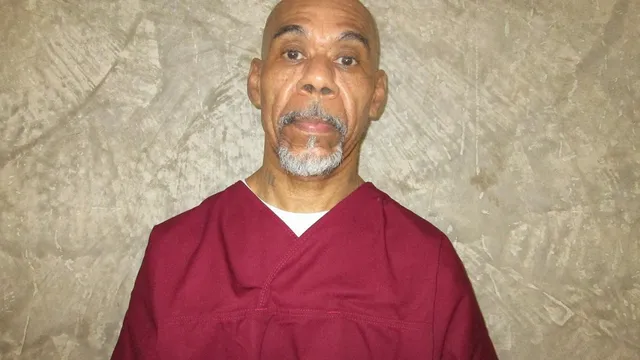
Oklahoma court approves execution of man for kidnapping and killing
2025-06-12 07:13- John Fitzgerald Hanson, convicted of murdering Mary Bowles, had his execution stay lifted by an Oklahoma appeals court.
- Hanson's attorneys argued that he did not receive a fair clemency hearing due to conflicts of interest in the decision-making process.
- The ruling reinforces the legal complexities surrounding Hanson's case and raises questions about the clemency process in capital punishment cases.
Express your sentiment!
Insights
In Oklahoma, an appeals court on June 11, 2025, lifted a temporary stay of execution for John Fitzgerald Hanson, who has been on death row for the murder of Mary Bowles in 1999. Hanson, now 61 years old, had been scheduled to receive a lethal injection but had his execution paused by a district court due to allegations of an unfair clemency hearing. His attorneys contended that a member of the state’s Pardon and Parole Board had conflicts of interest that affected the fairness of the 3-2 vote against recommending clemency. Despite these claims, the Oklahoma Court of Criminal Appeals ruled that the district court judge lacked the authority to impose the stay and characterized the temporary measure as unprecedented and unwarranted. The court pointed out that even if the member's vote was disregarded, there would still be no tie to advocate for clemency. This clarification led to the lifting of the stay, allowing the execution to be resumed. The legal disputes surrounding Hanson’s case extend beyond state court proceedings. He currently has a separate appeal pending before the United States Supreme Court, alleging that prosecutors failed to disclose critical information about a crucial witness to his defense team during the trial. This claim could potentially impact the legitimacy of the conviction and subsequent sentencing if upheld by the Supreme Court. Hanson's case arises from a horrific incident where he, alongside an accomplice, kidnapped Mary Bowles from a shopping mall in Tulsa, Oklahoma, leading to her brutal murder. This crime, coupled with Hanson's history of unrelated federal convictions, established details that played significant roles in his sentencing to death. The complexity of legal battles, amid public scrutiny, reflects ongoing discussions about the death penalty, clemency processes, and the rights of defendants under U.S. law.
Contexts
The Oklahoma Pardon and Parole Board plays a crucial role in overseeing the parole process for individuals incarcerated in the state's correctional facilities. The procedures established by the Board are designed to ensure that the parole process is conducted fairly, transparently, and in accordance with the law. The Board is a body composed of five members, appointed by the Governor and confirmed by the Senate. Their duties include reviewing applications for parole, making recommendations for changes in an inmate's sentence, and overseeing applications for pardons that aim to restore an individual's civil rights after they have served their sentence. The process includes thorough reviews of criminal records, behavior while incarcerated, and input from victims and law enforcement, ensuring a comprehensive evaluation of each case. The applications for parole must meet specific eligibility criteria, which generally include completing a significant portion of the sentence, having a clean disciplinary record while incarcerated, and demonstrating a commitment to rehabilitation. The Board conducts scheduled hearings in which the inmate can present their case for parole. During these hearings, relevant information such as psychological assessments and rehabilitation efforts are considered. This procedure ensures that decisions made are informed and reflect the individual's readiness to reintegrate into society. For individuals seeking a pardon, the process is similarly rigorous, requiring a detailed application and a review of their criminal history, as well as evidence of rehabilitation and community support. Public participation in the Board's proceedings is an essential aspect of the process, as it allows for victims and community members to express their opinions on parole and pardon applications. This input can greatly influence the Board’s recommendations and decisions. The Board is committed to maintaining a balance between allowing individuals the opportunity for rehabilitation and ensuring public safety. As such, the hearings are structured to allow ample time for consideration of all perspectives before reaching a conclusion. Furthermore, the decisions made by the Board can be appealed, providing an additional level of oversight and ensuring that the process remains fair and just. In summary, the procedures of Oklahoma's Pardon and Parole Board are designed to facilitate a fair assessment of eligibility for parole and pardons while prioritizing public safety and community input. The Board's commitment to transparency, thorough review, and accountability plays a pivotal role in the rehabilitation of offenders and the integration of individuals back into society. Their structured approach reflects a balance between the opportunities for second chances and the need to uphold the safety and interests of the community.